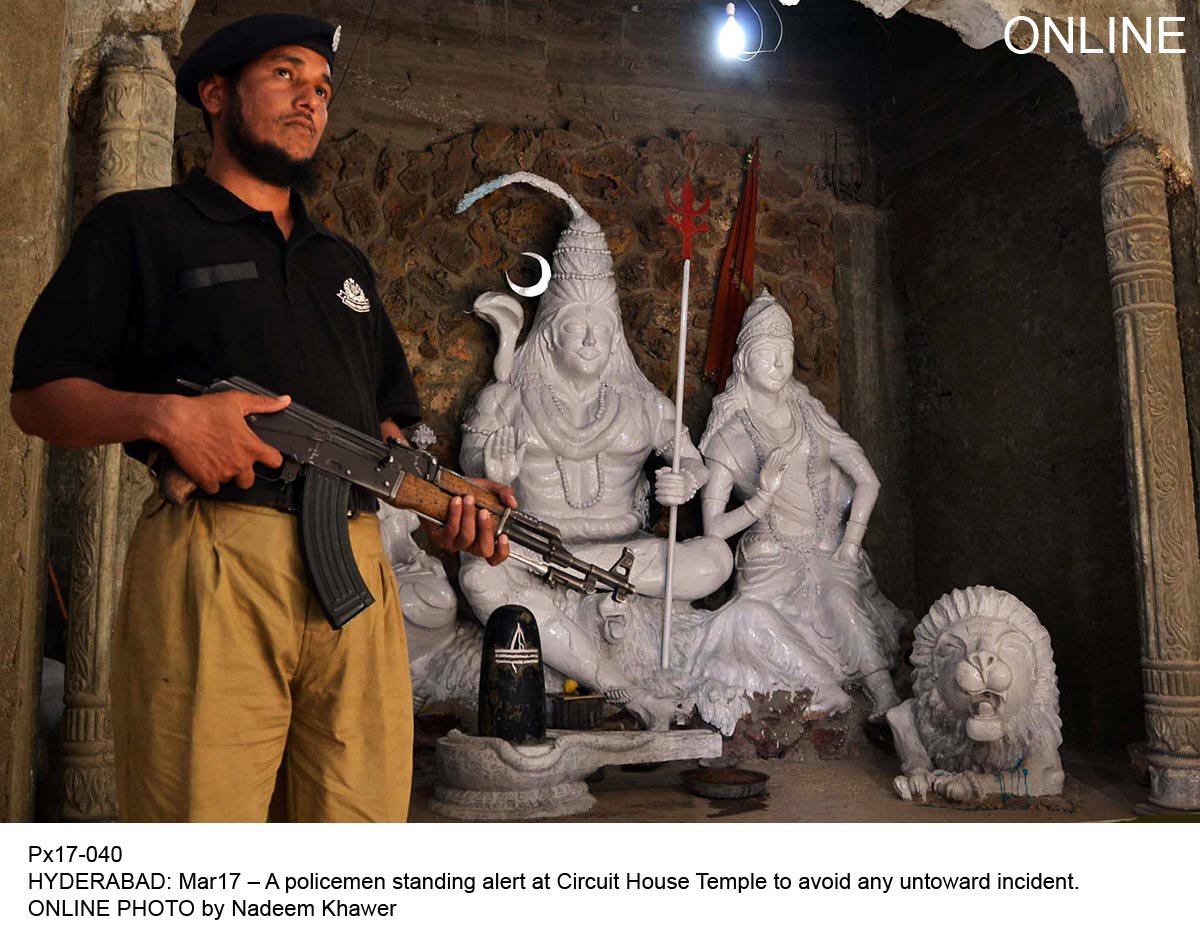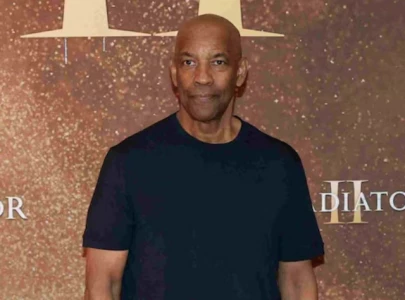
Riots had erupted after the alleged desecration of the Holy Quran by a Hindu youth in Larkana on Saturday night, due to which a mob attacked and torched a Dharam Shala [religious sanctuary] and a temple at Royal Chowk, as well as causing damage to other Hindu properties in Larkana and some cities of Balochistan. However, all the main bazaars and business centres of Larkana remained open today.
On the other hand, police have sealed the house of the Hindu youth, who is being kept at an undisclosed location, while his wife and children have been shifted to his relatives in the outskirts of Larkana. Police and Rangers have been deployed at the Dharam Shala as well as at temples and other Hindu property in order to avert any untoward incident. Senior PPP minister Nisar Khuhro held a meeting with Larkana.
What actually happened?
While many rumours have been floating about all of them remain unconfirmed. The Hindu man in question resided on the first floor of a house, while the man who witnessed the event, Abdul Manan Shaikh, lives on its ground floor. However, that is one of the few confirmed facts regarding the incident so far.
One of the rumours said that the Hindu man - a drug addict - often used abusive language and Shaikh used to ask him to refrain from it but he paid no attention, which resulted in a few scuffles. Sources, quoting another rumour, said that Shaikh was working in his laundry, when three unidentified men came with a plastic bag filled with papers. The men claimed that the bag contained pages of the Holy Quran that were thrown down from the first floor of his house, where the Hindu youth used to live.
The men were trying to wash the pages when police rushed to the scene. Upon seeing the police, the three men fled, leaving behind the plastic bag. According to another rumour, the Hindu youth had advanced a loan of Rs500,000 to a Muslim who was refusing to pay back. After a heated argument over the repayment, the Muslim had torn the pages of the Quran in order to frame the Hindu.
To answer these questions, investigation and inquiry committees have been formed, said Larkana ASP Tauqeer Naeem, who is part of the investigation committee.
Political friction
According to sources, Hindu Panchayat Larkana president Advocate Kalpana Devi has not attended any committee meeting and the Hindu Panchayat is being represented by other office bearers. Sources said that, she belongs to the Pakistan Muslim League - Quaid and is the general secretary of its minority wing and therefore prefers to keep away from the provincial leadership of the Pakistan Peoples Party who are now involved in the investigation.
Devi said that it makes no difference whether or not she attends the meetings. "I want to see peace flourish in Larkana," said Devi.
Published in The Express Tribune, March 18th, 2014.
COMMENTS (5)
Comments are moderated and generally will be posted if they are on-topic and not abusive.
For more information, please see our Comments FAQ

1732090022-0/Elmo-and-Amelia-(1)1732090022-0-165x106.webp)
1725523665-0/Minecraft-Movie-(1)1725523665-0-165x106.webp)

1732089759-0/BeFunky-collage-(75)1732089759-0-165x106.webp)

1732080054-1/Copy-of-Untitled-(48)1732080054-1-270x192.webp)










Shocking to say the least. Time for Pakistanis to realise the blasphemy laws are nothing but tools used for exploitation and victimising innocent men, women and children. It is nothing but outright abuse - law to protect the feelings of over 90percent against the 10percent!
when you have unjust and unnecessary laws,people are going to use them for their petty squabbles.A country that is 98% muslim considers Islam to be in danger in itself.Ridiculous!!
I am surprised how Hindus donot have rights in sindh pakistan.Thesese are some proof of more freedom to them; 1 they more education quota based on their population.Most of them are Doctors and engineers. 2 They have we'll establish bussiness and most of them are rich than local sindhi. 3. Huge number have bussiness abroad and well settled abroad.
It is sad but true most Hindu abroad forget sindh or pakistan but mix with indian Hindus.
"Cry 'Havoc!', and let slip the dogs of war".
After the Godhra carnage in India where 58 Indians were burnt in a train, a similar device was used. Indian "secularists" justified the burnings by spreading rumors that a tea vendor was not paid for his cup of tea; a tea vendors daughter was teased etc. and hence the violence. This callous rumor-mongering resulted in the riots which resulted in the deaths of a 1000 other Indians.
Irrespective of religion or country, the group of people who started the rumors have to pay for the resulting death and destruction.